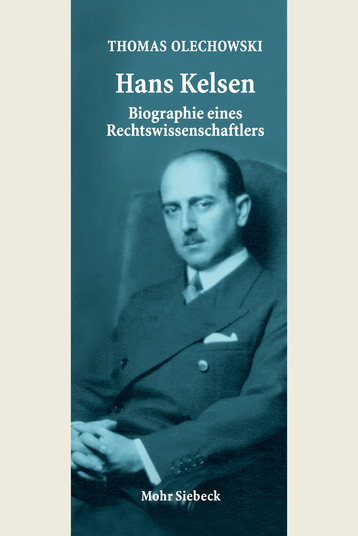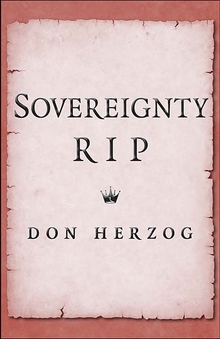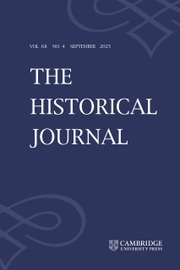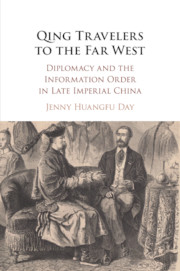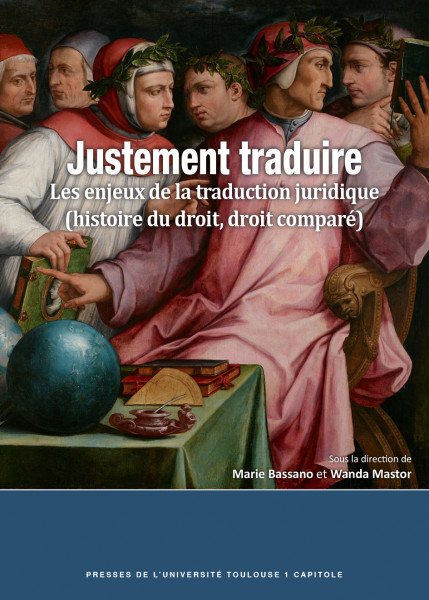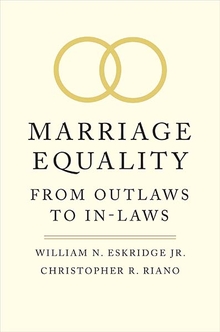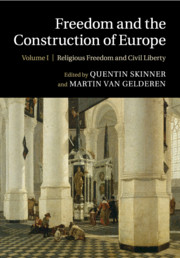
Abstract:
Organisation: Sandro Guzzi-Heeb, Luigi Lorenzetti, Martin Stuber
Wem gehört die Schweiz? Unter diesem Titel veröffentlichte Hans Tschäni 1986 einen Band, der sowohl die Geschichte des Eigentums als auch die verpassten Gelegenheiten für eine gemeinschaftliche Bodenbewirtschaftung in der Schweiz nachzeichnete.
Während die pointierte Darstellung des Basler Publizisten die Grundlage für zahlreiche Analysen über die Natur des Eigentums und ihre Auswirkungen auf das wirtschaftliche, soziale und politische Leben wurde, haben sich die HistorikerInnen in unserem Land nur vereinzelt mit dieser Thematik befasst und sie grösstenteils den spezialisierten RechtshistorikerInnen überlassen. Deren Untersuchungen zeigen, dass der Begriff des Eigentums das Ergebnis philosophischer Konstrukte sowie politischer und wirtschaftlicher Modelle ist, die im Lauf der Zeit weiterentwickelt werden und das Verhältnis der Gesellschaft zu den materiellen Gütern verändern. So ermöglichte die Zersetzung des römischen Eigentumsbegriffs durch das mittelalterliche Recht die Entstehung des «geteilten» Grundeigentums, das mehrere Zugriffsebenen beinhaltet und eine Vielzahl von Akteuren involviert. Für den mittelalterlichen und frühneuzeitlichen Menschen konnte das Eigentum an einem Gut aufgeteilt werden zwischen demjenigen, der das Obereigentum (dominium directum) und denjenigen, welche die Nutzung des Gutes innehatten (dominium utile), wobei sich mehrere Nutzungsrechte räumlich überlagern und sich im Jahreslauf zeitlich ablösen konnten. Über Jahrhunderte stellte die politische und juristische Philosophie dieses Prinzip der plura dominia in Frage und ebnete damit den Weg für die liberale Revolution, die mit der Erklärung der Menschen- und Bürgerrechte von 1789 das individuelle Privateigentum als «unverletzliches und heiliges» Recht (Art. 17) festschrieb, ohne jedoch den Gedanken auszulöschen, dass das Eigentum am Ursprung der Ungleichheit stehe (Rousseau) oder ein Instrument der Herrschaft des Menschen über den Menschen (Marx) sei.
Die verschiedenen Eigentumskonzepte haben sich tief in der wirtschaftlichen, sozialen und kulturellen Dynamik der westlichen Welt niedergeschlagen. Jahrhundertelang wurden die unterschiedlichen Agrarlandschaften Europas durch die Art des Bodeneigentums definiert. Durch den Besitz von Boden und Immobilien wurden die Strategien und die Geschicke der Wirtschaftsakteure, die Privilegien bestimmter Gruppen, die Schicksale von Familiendynastien und ganz allgemein die Grundlagen der sozialen Hierarchien definiert. Darüber hinaus war (und ist) Immobilienbesitz weit davon entfernt, lediglich eine Form der «Versteinerung des Geldes» zu sein, sondern bildet bis heute über das Baugewerbe einen Schlüsselsektor der Wirtschaft, der mitunter eine antizyklische Funktion einnimmt.
Der Aufstieg der industriellen Wirtschaftsweise hat die produktive Rolle des Grundeigentums geschmälert, seine vielfältigen Funktionen verlor es dabei aber keineswegs. Immobilien bleiben auch in Zeiten der Wirtschaftskrise ein sicherer Hafen, und ihr Tauschwert kann erheblich schwanken, was Formen der Spekulation auslösen kann. Zudem steht die Verfügungsgewalt über Boden auch heute noch im Mittelpunkt vieler Wirtschaftszweige (Logistik, Baugewerbe, extensive Landwirtschaft usw.), was sich im Wettlauf um die natürlichen Ressourcen manchmal durch die «räuberischen» Mechanismen des land grabbing äußert.
Obwohl diese Ansätze hier nur sehr schematisch wiedergegeben werden können, geben sie doch einen Einblick in den mehrdimensionalen und übergreifenden Charakter der Thematik «Grundeigentum», die offen ist für unterschiedlichste analytische Perspektiven. Die Jahrestagung soll Gelegenheit bieten, die Geschichte des Eigentums neu zu beleuchten. Wir schlagen fünf verschiedene Zugänge vor.
1. Eigentumsformen und ihre sozialen oder wirtschaftlichen Folgen
Bis vor verhältnismässig kurzer Zeit war der Zugang zu Eigentum durch rechtliche und institutionelle Normen mehr oder weniger streng begrenzt. In den meisten Gesellschaften der Vergangenheit waren Frauen, Sklaven, Hausangestellte oder ethnische Gruppen wie beispielsweise Juden teilweise oder ganz vom Besitz von Grundeigentum ausgeschlossen. Auch am gemeinschaftlichen Grundeigentum, den sogenannten «commons», denen in vielen historischen Gesellschaften eine zentrale Bedeutung zukam, konnten breite Bevölkerungsteile wie «Hintersassen» und «Fremde» nur eingeschränkt oder gar nicht teilhaben. Gleichzeitig genossen bestimmte soziale Kategorien wie der Klerus oder der Adel besondere Eigentumsformen, die im Allgemeinen mit weiteren Privilegien verbunden waren. Die heutige Zeit hat diese Unterschiede durch die Vereinheitlichung der Eigentumsordnung in vielen Bereichen abgeschwächt oder sogar beseitigt. Der Zugang zu individuellem Eigentum ist jedoch nach wie vor für verschiedene Bevölkerungsgruppen rechtlich nicht vereinheitlicht. Teilweise sind Sonderbestimmungen in Kraft, zum Beispiel für AusländerInnen. Es stellt sich daher die Frage, welche wirtschaftlichen und sozialen Folgen die unterschiedlichen Eigentumsregelungen haben. Wie haben sich diese Unterschiede im Laufe der Zeit verändert?
2. Struktur und Verteilung von Eigentum und Wachstumsdynamik
Im zweiten Zugang wird versucht, die Mechanismen hinter der Konzentration und Verteilung des Grundeigentums im Hinblick auf die wirtschaftliche Dynamik zu untersuchen. Historische Analysen haben gezeigt, dass Prozesse der Konzentration und Verteilung von Wohlstand sowohl in Wachstumsphasen als auch in Krisen stattfinden können. Inwieweit bezieht sich das beobachtete Ergebnis auf die Rolle des Grundeigentums in verschiedenen historischen und geographischen Kontexten? In dieser Hinsicht wäre auch das Gewicht der demographischen Variablen zu hinterfragen. Im Laufe der Geschichte können Entvölkerungsphänomene sowohl zu Eigentumskonzentrationen als auch zu Umverteilungsdynamiken führen. Inwieweit sind die Regeln des Zugangs zu Grundeigentum für diese beiden unterschiedlichen Ergebnisse verantwortlich? Und umgekehrt: Inwieweit zählen Exklusions- und Inklusionsvorgänge beim gemeinschaftlichen Grundeigentum zu den wichtigen Faktoren der Bevölkerungsdynamik?
3. Der Grundstücks- und Immobilienmarkt: Angebot, Nachfrage, Preis, Konjunktur
Die Beziehung zwischen Eigentumsregime und Wirtschaftswachstum steht im Mittelpunkt des neo-institutionalistischen Modells, dessen Hauptthese das «absolute» Eigentum als Voraussetzung für ein effizientes Funktionieren von Märkten postuliert. Während verschiedene historische Studien die Grenzen dieses Modells aufgezeigt haben, müssen die Auswirkungen der Marktdynamik auf die Eigentumsregelungen noch untersucht werden. Mit anderen Worten: Wie wirken sich Angebot und Nachfrage auf unterschiedliche Eigentumsformen aus? Gleichzeitig haben historische Analysen die enge Beziehung zwischen Grundstücks- und Kreditmarkt aufgezeigt. Insbesondere die Überschuldung scheint in bestimmten Kontexten zur Haupttriebkraft für die Zirkulation von Boden geworden zu sein. Inwieweit hat diese Dynamik unter dem Regime des «absoluten» Eigentums zugenommen? Schließlich sind die Grundstücks- und Immobilienmärkte nicht selten Gegenstand spekulativer Bewegungen. Eine solche Dynamik – die beim Wachstum der Städte, aber auch während des Tourismusbooms vielerorts zu beobachten ist – bietet die Gelegenheit, den Kontext rund um die Grundstücks- und Immobilienmärkte zu analysieren. Besonders interessieren dabei sowohl staatliche und kommunale Instrumente der Marktregulierung als auch eher städtische Aneignungsformen wie genossenschaftliches Wohneigentum, Zwischennutzung und Areal- oder Hausbesetzung, die das Grundeigentum den kurzfristigen Spekulationsinteressen zu entziehen versuchen.
4. Eigentumssysteme und die Beziehung zwischen Staat und Individuum
Die Thematik «Eigentum» kann durch das Prisma der Beziehung zwischen dem Staat und den Individuen betrachtet werden. Zu den möglichen Quellen gehören die seit dem 18. Jahrhundert eingerichteten Kataster, die eine Fülle von Informationen liefern, insbesondere über den Aufbau der Verwaltungs- und Steuersysteme moderner Staaten. Aber welche Rolle spielen sie bei der (rechtlichen und räumlichen) Abgrenzung von Eigentum sowie bei der Einrichtung von Instrumenten der territorialen Verwaltung? Eine vor kurzem durchgeführte Neulektüre der historischen Entwicklung der Eigentumsregime legt die Vermutung nahe, dass das Ende des Ancien Régime keine wesentlichen Veränderung der Lage der meisten Eigentümer mit sich gebracht hat, weil das Obereigentum über Grund und Boden - das zuvor bei der Landesherrschaft lag - durch die Hoheit des Staates ersetzt wurde. Was waren also die Folgen der Abschaffung des Feudalismus, die von der Französischen Revolution gefeiert wurde? Wie wirkt sich das Obereigentum über das Grundeigentum in den heutigen Staaten auf das Verhältnis zwischen Individuen und politischer Macht aus? Wie setzt der Staat dem «absoluten» Privateigentum Grenzen, so bei umweltpolitischen Zielen wie Biodiversität oder Landschaftsschutz oder bei der Raum- und Stadtplanung? Welche Kriterien grenzen das kollektive Interesse und das Gemeinwohl im Verhältnis zum Privateigentum ab, besonders auch in der langfristigen Perspektive der Nachhaltigkeit?
5. Eigentum und soziale Dynamik
Das «Grundeigentum» können HistorikerInnen mit einer Vielzahl von Leseschlüsseln versorgen, um kurz-, mittel- und langfristige soziale Dynamiken zu identifizieren. Durch Eigentum werden die Dynamiken der sozialen Mobilität sowie die Solidaritäts- und Klientelnetzwerke strukturiert. In ähnlicher Weise ist Eigentum auch eine Möglichkeit, die Beziehungen zwischen den Generationen und die Beziehungen innerhalb von Verwandtschaftsgruppen zu definieren. Inwieweit beeinflussen zum Beispiel Schwankungen (kurz- und langfristig) in der Form und im Nutzungswert von Grundeigentum die Reproduktionsstrategien von Familien? Inwiefern haben Beschränkungen des Zugangs zu Eigentum das Überleben politischer Regime begünstigt, die auf Zensuswahlrecht beruhen? Und schließlich: Inwieweit kann die Gender-Perspektive dazu beitragen, die historischen Transformationen von Grundeigentum zu verstehen?
Im Hinblick auf die Jahrestagung 2021 laden wir sie ein, die vorgeschlagenen Fragen zu diskutieren. Wir sind an Beiträgen zu den Formen des Grundeigentums vom Mittelalter bis in die Gegenwart interessiert und werden insbesondere Vorschläge bevorzugen, die zwar auf konkreten Analysen basieren, aber eine kritische Auseinandersetzung mit der Geschichtsschreibung des Grundeigentums entwickeln und originelle Analysen vorschlagen.
Practical:
Bitte senden Sie Ihr Exposé (max. 3000 Zeichen) bis zum 1. Dezember 2020 an: luigi.lorenzetti@usi.ch. Sie werden bis zum 30. Januar 2021 benachrichtigt. Papers zur pre-circulation sind bis zum 30. Juni 2021 den Organisatorinnen zuzustellen. Erfolgreich begutachtete Beiträge können im Jahrbuch der Schweizerischen Gesellschaft für Wirtschafts- und Sozialgeschichte publiziert werden. Abgabefrist zur Einreichung der Beiträge: 30. Dezember 2021.
(source: HSozKult)







